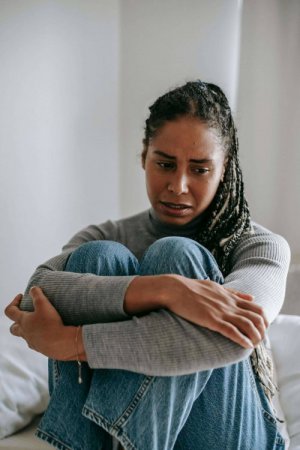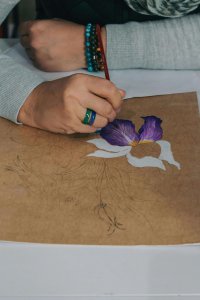Have you, or someone close to you, dealt with racist encounters, discrimination, or microaggressions? Do you find yourself dwelling on these experiences? Are you constantly living in fear, feeling down, or even struggling with low self-esteem? These could be signs that you, or someone you know, is experiencing racial stress, or recently been through a race-based, traumatic event.
Racialized trauma often stems from systemic racism. It can significantly impact how a Person of Color views themselves and their overall mental well-being.
What Exactly is Racial Stress & Trauma? Is There A Difference?
While “racial stress” and “race-based trauma” are often used interchangeably, there are some key differences between the two. Furthermore, it’s possible to experience both after a racebased discriminatory event or hate-crime.
Racial Stress
Racial stress is the psychological response our bodies have to discriminatory events. Think racial slurs or being on the receiving end of constant microaggressions at work. It can involve behavioral, physiological, and emotional responses. You may feel your heart racing more, be distracted, or constantly on edge. Being exposed to ongoing discriminatory comments can lead to persistent and pervasive feelings of depression.. Racial stress can also contribute to chronic conditions like hypertension. Experiencing sustained stress over long periods of time can overwhelm our physiology due to a build up in stress hormones that can disrupt bodily functions.
Racial Trauma
Racialized or race-based trauma involves the development of symptoms similar to posttraumatic stress disorder (PTSD). This often follows severely traumatic events, like experiencing a hate crime, or a Youth of Color facing bullying for their racial-ethnic identity. It can show up as recurring intrusive thoughts about what happened, avoiding where it happened, or being hyper-aware of your surroundings. This might look like mentally replaying an incident at school or work and then calling out sick because you just can’t go in. These symptoms can also contribute to other psychological disorders, such as major depressive disorder or social anxiety disorder.
Different Ages, Different Wounds: Understanding the Impact
Indeed, symptoms can vary in people strongly affected by race-based stress or racialized trauma. There are some key differences in how it shows up in children & adolescents versus adults.
Children & Adolescents
Racial trauma can show up differently in Youth of Color. Unlike adults, children and teens are still figuring out their identity. Their sense of self-esteem can be very vulnerable. In addition, children don’t have a history of life experiences and knowledge to rely on when trying to cope with traumatic events. These events literally shape who they are and how their brain chemistry develops.
Here are some examples of what symptoms may look like:
- Severe damage to their confidence and sense of self
- Sadness, stress, or struggling with anxious thoughts that often pop up in their head
- Trouble learning, difficulty concentrating, distractability
- Insomnia, nightmares, trouble falling asleep
- Headaches and stomachaches
- Being on edge all the time
- Beginning to engage in more risk-taking behaviors
- Feelings of guilt or shame about one’s racial identity, internalized racism, or trying to fit in with another racial group at the expense of one’s identity
Adults
For adults of Color who have experienced racial trauma, symptoms can develop into more serious health conditions.
Here are some examples of how racial trauma presents in adults:
- Development of serious health problems, such as:
- Body aches
- Chronic Insomnia
- Chronic pain
- Cardiovascular disease
- Breathing issues
- Digestive issues
- Having a hard time focusing while at work.
- Development of increased fear, shame, or guilt
- Emotional numbness
- Relationship strain, due to the past trauma they’ve experienced
How Can Art Healing Therapy in NJ Help?
Coping with racial trauma doesn’t always have to take place in a therapist’s office. When looking at treatment options for racial trauma, many studies show the effectiveness of using art as a way to process trauma. Using art can help address symptoms of anxiety and depression that often come up in people who have experienced trauma. Creating artwork can also help people process their trauma narrative through imagery that they create. Making art lets you tell your story through images rather than just words.
Art for Healing Racial Trauma
Simple Art Activities You Can Try At Home
- Make a collage about your healing journey using found magazine cutouts, photos, or images that best represent your story and who you are. Use websites such as Canva to make a digital collage and print it out.
- Create a personal symbol that represents you or your experiences. It could be an animal, plant, shape, or object that feels meaningful to you. For example, someone might choose a tree with deep roots to show their connection to family heritage, or a bird to represent freedom.
- Try body awareness art by drawing an outline of a body (it doesn’t have to be detailed) and use watercolors to show where you feel stress, pain, or emotion. Watercolors work well because they can blend and flow like feelings do. You might use soft yellow watercolors in the stomach area to show anxiety, or deep red washes on the shoulders to show where you carry tension. The colors and how you apply them can represent your unique experience.
Other Ways to Engage in Self-Care
- Practice mindfulness through meditation, yoga, or just taking a walk outside
- Disconnect when you can from social media and news, especially when you start to feel hopeless
- Engage in community by looking for support groups or art therapy workshops, specifically for racial stress and trauma
Remember, these activities aren’t just “extras” – they’re important tools that can help your mind and body recover from the very real effects of racial trauma.
Trauma-Focused & Culturally-Affirming Art Directives
You might be wondering, what type of art-based interventions would an art therapist use for a person who has experienced racial trauma? There are various trauma-focused and culturally-affirming art directives that can benefit someone struggling with trauma-based symptoms. For example, research supports the use of response-art as a way to process a racially traumatizing event. Creating response art usually starts with witnessing something happen, then working through it with a creative outlet. This could be like visual journaling, where you make a journal entry by applying images that best represent what you’ve experienced, as opposed to words.. Additionally, mindfulness-based art therapy and art-based grounding techniques can help reduce some of the anxiety-based symptoms that come with experiencing trauma. This can look like using watercolor paint on a canvas and painting your breath as a way to bring yourself down during a high-anxiety moment.
Working with a Culturally Sensitive & Culturally-Affirming Art Therapist in Branchburg NJ
While the interventions to treat racial stress & trauma are important, working with a culturally competent and culturally-affirming mental health professional is crucial. When starting the healing journey of unpacking race-based trauma in therapy, the clinician you choose to work with matters. A culturally sensitive art therapist can hold space and acknowledge the importance of this type of work. It’s important for the art therapist to be trained and specialized in trauma, but especially, oppression-related trauma. It’s also important to find a clinician who understands antiracist clinical work, and can navigate discussions about race that might feel uncomfortable to talk about, at first. Overall, a culturally-affirming art therapist can work with you to process some of the painful parts of experiencing race-based trauma through a new and effective form of treatment
Begin Your Healing Journey Today
Are you or someone you know struggling with racial stress or trauma? You don’t have to face this journey alone.
Take the First Step Toward Healing
- Connect with Brave Minds Psychological Services
- Begin working with a trauma therapist in scotch plains and branchburg, NJ
- Start healing from racial stress and trauma.
Experiencing other Trauma or Stress? A therapist in Branchburg NJ can help.
You may have other traumas in your life causing you pain. Whether your trauma is race-related or not, we can guide you on your healing journey. At Brave Minds Psychological Services, we specialize in trauma recovery and PTSD treatment using evidence-based approaches including Cognitive Behavioral Therapy (CBT) and Eye Movement Desensitization and Reprocessing (EMDR).
Our compassionate team provides personalized care for various trauma experiences, including birth trauma, sexual assault, childhood trauma, and racial trauma. We also offer comprehensive mental health services for all ages, including anxiety counseling, couples counseling, parent support, and postpartum counseling. If you’re ready to begin your healing journey, contact us at 908-224-7727 to get started with trauma-informed therapy at Brave Minds Psychological Services or through online therapy in NJ today!






